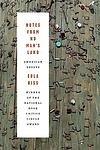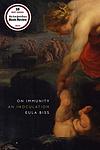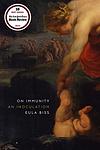Eula Biss
Eula Biss is an American author known for her work in non-fiction, particularly essays. Her writing often explores themes of race, identity, and social justice, and she has received critical acclaim for her thoughtful and lyrical prose. Biss's notable works include 'Notes from No Man's Land: American Essays,' which won the National Book Critics Circle Award for Criticism, and 'On Immunity: An Inoculation,' which delves into the cultural fears surrounding vaccination.
Books
This list of books are ONLY the books that have been ranked on the lists that are aggregated on this site. This is not a comprehensive list of all books by this author.
-
1. Notes from No Man's Land: American Essays
"Notes from No Man's Land: American Essays" is a collection of essays that explores the concept of race in America. The author uses personal experiences, historical events, and cultural analysis to examine the complexities of racial identity, privilege, and the often unacknowledged history of racial violence in the United States. The book also delves into the author's own struggles with her white identity and how it intersects with her experiences of living in predominantly black neighborhoods.
-
2. On Immunity: An Inoculation
In "On Immunity: An Inoculation," Eula Biss explores the history and controversy surrounding vaccination. Drawing on personal experiences as a new mother and extensive research, she examines the fears and myths surrounding vaccines and the impact they have on society. Biss ultimately argues that vaccination is not just a personal choice, but a collective responsibility to protect public health.
-
3. On Immunity
This book delves into the cultural and ethical dimensions of vaccination, weaving personal narrative with scientific research to explore society's fears and myths surrounding immunity. The author examines the history and science of vaccination, addressing public skepticism and the complex issues of risk and responsibility in a community. Through a thoughtful investigation, the book challenges readers to consider the implications of our interconnectedness in the face of health crises and the moral obligations we share in protecting not only ourselves but also the most vulnerable among us. It is a compelling blend of literature, medicine, and philosophy that invites a deeper understanding of what it means to be immune.


